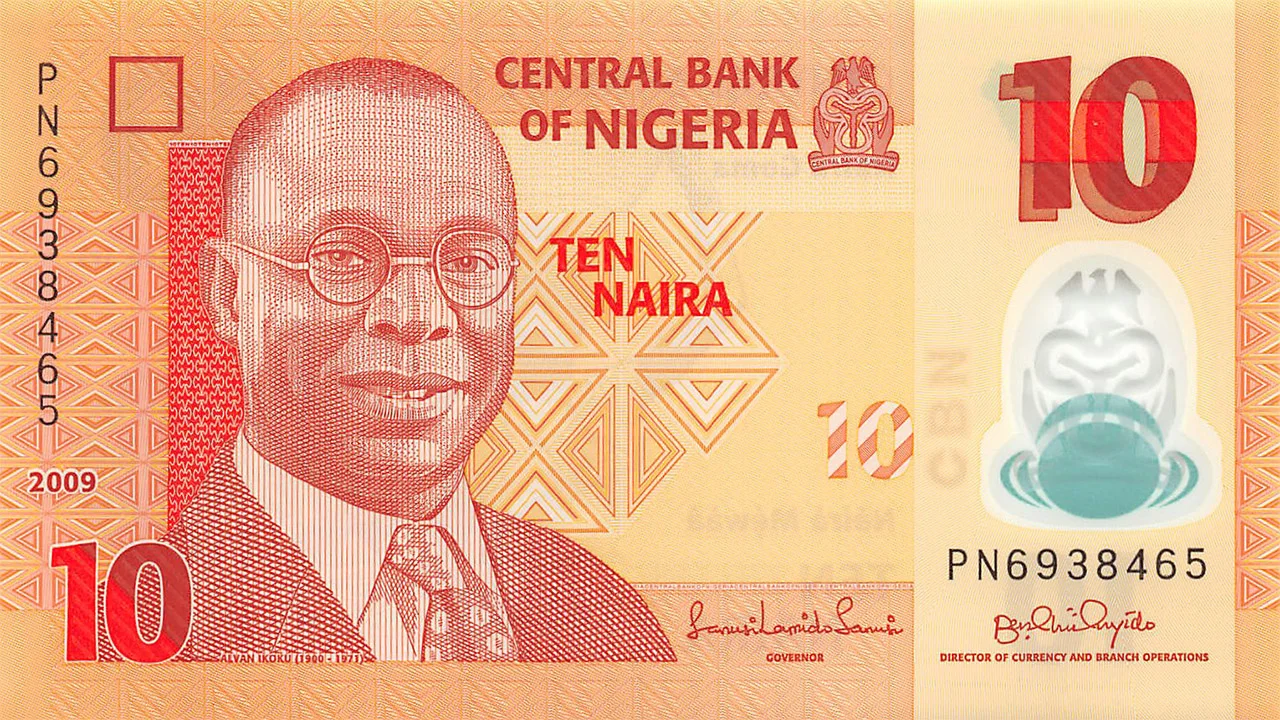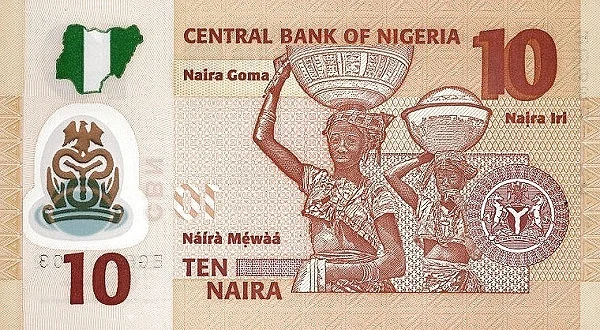Last week, we looked at the story behind the 5 Naira note, which celebrated the legacy of Nigeria’s first Prime Minister, Abubakar Tafawa Balewa, and the cultural importance of the Nkpokiti dance group on the back of the note. This week, we’re continuing our exploration of Nigeria’s currency with the 10 Naira note. This note holds significant meaning as it represents Nigeria’s strides in education and its rich cultural traditions.
The 10 Naira note, measuring 130mm x 72mm, was first introduced in 1979 and re-issued in 1984 in a different colour. On the front, we see the portrait of Dr. Alvan Azinwa Ikoku, a key figure in shaping Nigeria’s education system. On the back, there’s an iconic image of Fulani milk maids, who are a symbol of Nigeria’s pastoral economy, an important part of rural life.

Photo credit: foreigncurrencyandcoin.com
Alvan Azinwa Ikoku
Dr. Alvan Ikoku, an educator, activist and politicia, played a huge role in shaping the country’s education system. Alvan was born on August 1, 1900, Amanagwu in Imo State. He started his teaching career in 1920 at Itigidi, Cross River State, working with the Presbyterian Church of Scotland.
He went on to earn a degree in philosophy from the University of London in 1928, completing his studies through correspondence. In 1931, he founded Aggrey Memorial College in Arochukwu, one of the first private secondary schools in Nigeria, named after the renowned Ghanaian educationist, Dr. James Aggrey.
In 1946, following constitutional changes that allowed more Nigerians to be involved in the legislative process, Alvan was nominated to the Eastern Nigeria House of Assembly, where he was assigned to the Ministry of Education. The following year, he went to the Legislative Council in Lagos as one of three representatives of the Eastern Region.
Alvan was passionate about improving education across Nigeria. He pushed for better education policies and became the National President of the Nigeria Union of Teachers (NUT) in 1955.
In government, Alvan exerted his influence to foster the interests of the NUT and promote education. He was instrumental in getting 44 proposals from the NUT accepted by the legislative council, leading to amendments to various educational ordinances.
He also worked hard for the introduction of uniform education in Nigeria through the NUT. The union’s recommendations for uniform education were initially rejected by the colonial government. However, after independence, the proposals became the foundation of the country’s official education policy.
Alvan served on various educational bodies in Nigeria, including the West African Examinations Council (WAEC), the council of the University of Ibadan, and as Chairman of the Board of Governors of the Aviation Training Centre. In recognition of his significant contributions to education, he was awarded an honorary degree of Doctor of Law by the University of Ibadan in 1965.
Alvan Ikoku passed on in 1971, but his impact on Nigeria’s education system continues to be felt today.

Photo credit: foreigncurrencyandcoin.com
Fulani Milk Maids: A Symbol of Nigeria’s Pastoral Economy
The back of the 10 Naira note shows an image of Fulani milk maids, representing the pastoral economy of Nigeria. The Fulani people have been involved in livestock farming for centuries, and milk production has always been an important part of their way of life. The women, known as milk maids, play a central role in this trade, which remains a major economic activity, especially in rural areas.
The image on the note highlights the importance of pastoralism and the cultural traditions that have shaped the Fulani community.
Next week, we’ll take a closer look at the evolution of the 20 Naira note. Stay tuned!


